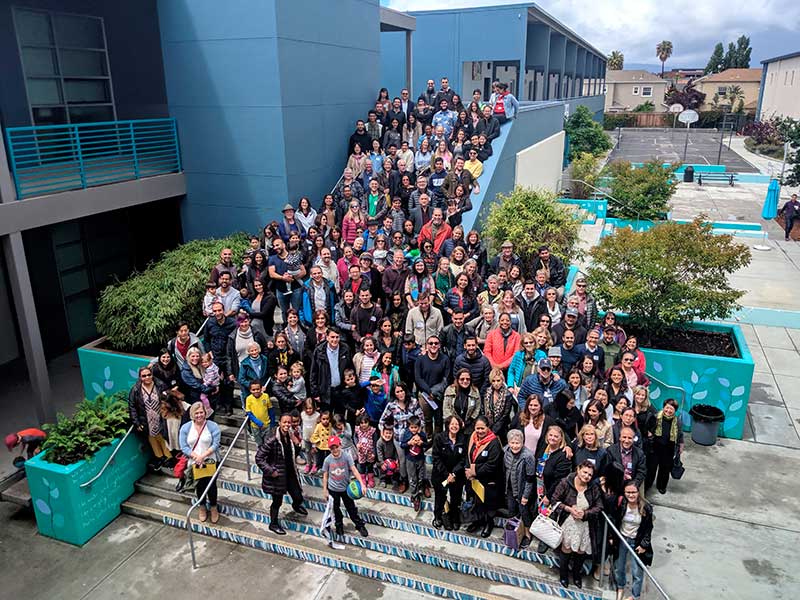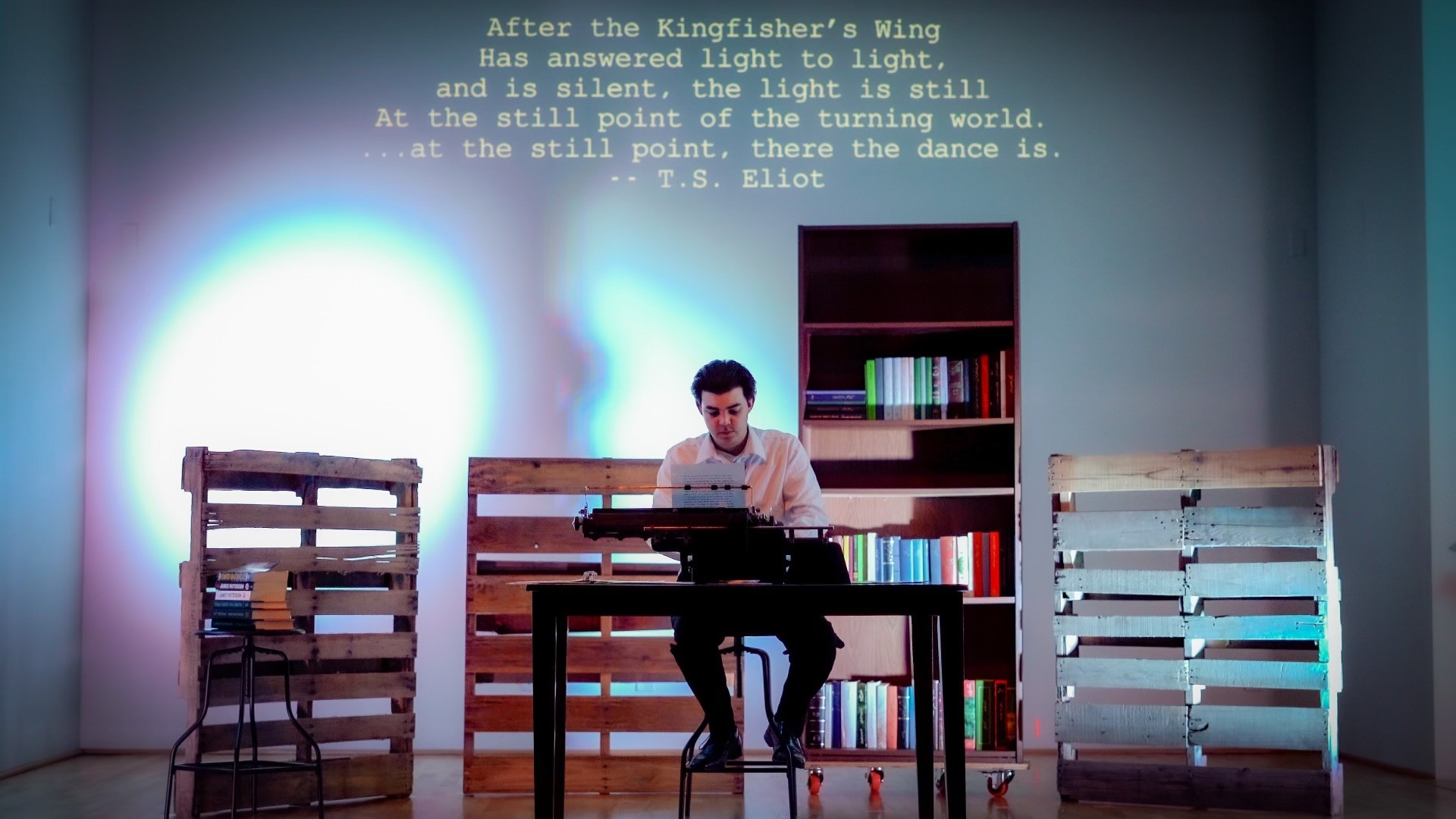
Power of the spirit: Black History Month event at Temple stirs hundreds
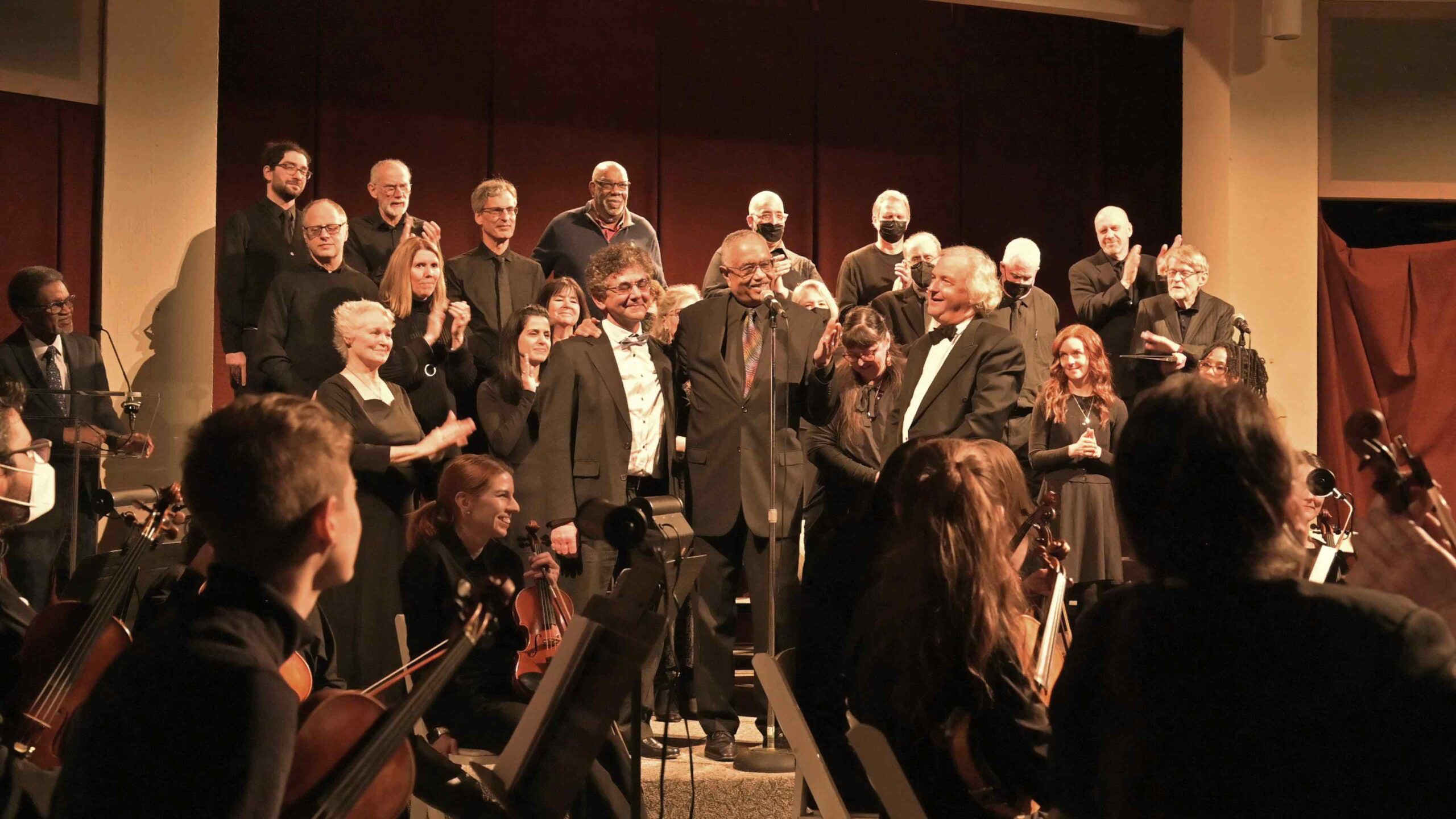
“Black Resistance” is the theme of this year’s U.S. observance of Black History Month, calling for a reversal of the devaluation of African Americans’ contributions to society. For artist Andalib Khelghati, it’s an idea that calls on the power of the spirit. “As a Black Baha’i,” said Khelghati, “I believe that resistance means reliance on the words of Baha’u’llah to celebrate who I am and the nobility within. It’s a dynamic process.”
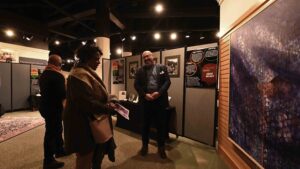
Khelghati contributed to a “pop-up” exhibit at the Black History Month celebration the evening of February 4 at the Baha’i House of Worship in Wilmette, Illinois. His paintings, he said, “reflect the dynamics of a meditative but engaged mindset.”
More than 350 people, including numerous families, packed Foundation Hall on the Temple’s lower level as the celebration showcased choral and orchestral music, poetry and art created by African Americans as well as selections from the National Baha’i Archives.
A series of talks at the event by several organizations in the Chicago North Shore suburbs demonstrated a commitment to justice, interracial dialogue, relationship building and strengthening historically oppressed voices. The talks underscored that racism and the history and legacy of slavery go against the basic principles of morality and create inequality—denying an entire segment of society the chance to develop and showcase their full potential and to lead a fulfilling life, while holding back the progress of society as a whole.
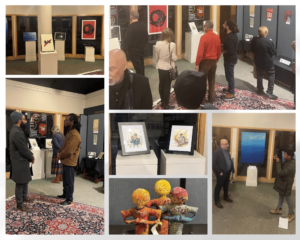
Baha’is believe that “spiritual solutions are required” to overcome racism in this country, Van Gilmer, music director for the House of Worship, told the audience. “But we can’t just talk about them, we need deeds. We have to act.”
Said the Temple’s director, George Davis, “Filling this hall tonight is just the beginning of what we hope will be a series of connections and relationships that will grow and grow over the coming years.”
Davis added that North Shore residents made up a large share of the audience, alongside Baha’is and friends from surrounding localities. Many were visiting the Temple for the first time.
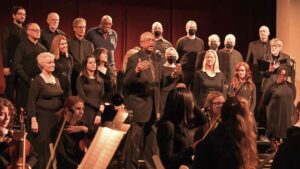
The event’s centerpiece was a selection of musical pieces by Black composers, performed by the Baha’i House of Worship Choir, conducted by Gilmer, and the Lincolnwood Chamber Orchestra, conducted by Philip Simmons. It was the third major concert in the past few years in which these two ensembles have collaborated, two of them focusing on Black heritage.
“Van Gilmer is a great man and my good friend. All of the collaborations that we do with him and with the [Baha’i] House of Worship are very, very special,” said Simmons, who also serves as artistic director of American Music Festivals and resident conductor for the Orchestra of the Hawaiian Islands.
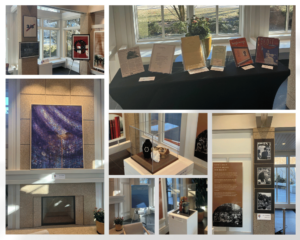
Planning for the event began in November, said Jocelyn Reynolds, who coordinated the art which will be displayed in the Welcome Center of the Baha’i House of Worship for the full month.
“Since the oneness of humanity is a central principle of the Baha’i Faith, it makes sense to have an event like this at the Baha’i House of Worship, bringing together different people from all over in celebration of Black history, the arts and those that have influenced us and helped all of us to move towards oneness,” said Reynolds, a member of Group-31, a committee at the Baha’i National Center in nearby Evanston that focuses on the issue of race through the lens of this principle of oneness.
“We know Black people have a lot to offer,” Reynolds said, “and we wanted to showcase a small bit through the visual arts and poetry.”
A welcoming speech by Kenneth Bowers, on behalf of the National Spiritual Assembly of the Baha’is of the United States, emphasized the importance of the efforts happening at all levels compelling humanity toward oneness.
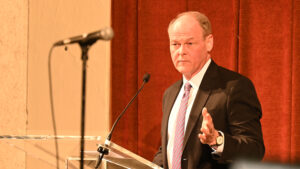
“The realization of the essential oneness of all humanity is the pivotal principle of our times,” he said. “The lack of this awareness, together with the [lack of] capacity to act upon it, is the key obstacle to peace and prosperity today. This lack results in distorted views of who we are with all of the prejudices that go with it. … We need to recognize and acknowledge our true history,”
He additionally cautioned against condemning the evils of the past while remaining insensitive to present-day racism. “We must build the capacity truly to hear and acknowledge the voices of those who have directly suffered from the effects of racism. And this capacity should manifest itself in our schools, in the media, and other civic arenas, as well as in our work and our personal relations,” he said. “This should not be a conversation, though, that ends just with words, but leads to constructive action in which all people participate fully.”
Poetry was recited by Stephanie Lane-Baker, Taylor Varnado and Blazey Omondi. “My poetry represents unity and strength found in the fabric of humanity binding us together as we push and lift each other upwards,” Lane-Baker commented.
Talks by Wilmette Village President Senta Plunkett and Northbrook Historical Society president Judy Hughes echoed the sentiments of humanity’s oneness. Plunkett praised the work of Wilmette’s recently revived Human Relations Commission, which counts Gilmer as a member. “I’m proud of the work of the commission over the last two years, engaging with our residents, developing a work plan and programming, and working with our community partners on creating and sharing local events and educational resources,” she said.
Members of several North Shore groups also spoke about their efforts to create positive change in the area. They included HEROS — Healing Everyday Racism in Our Schools, and its ABC (Action Based Book Club); the League of Women Voters of Wilmette; Montgomery Travelers; New Trier Multifaith Alliance; RAIN — Racial Awareness in the North Shore; and the Wayfarer Foundation.
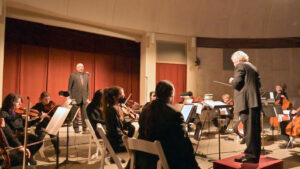
In most of the North Shore, Gilmer said, “there is in every village no more than about 1% Black (residents).”
Black History Month, he said, is “a time to focus some on the accomplishments, the achievements, the growth of Black people in America. And the people here have been working in many ways.”
Davis added, “It’s important that the Baha’i House of Worship continues to host these events and to strengthen the connection between worship and service, but communities don’t have to have a building to start that connection. A living room, community center, school or wherever will do.”
After reflecting on the event a few days later, the coordinators identified areas for growth. Reynolds praised, “the diverse audience, saying that the response was overwhelmingly positive.” As coordinators considered the varying needs of different groups who attended, the idea emerged to organize multiple events throughout Black History Month next year.
“We don’t have to wait till February,” she said the group agreed. “Opportunities of engagement, meaningful conversations about the oneness of humanity, race and class, and engagement in worship and service need to happen all year round. And we can bring that regularly to the House of Worship.”


